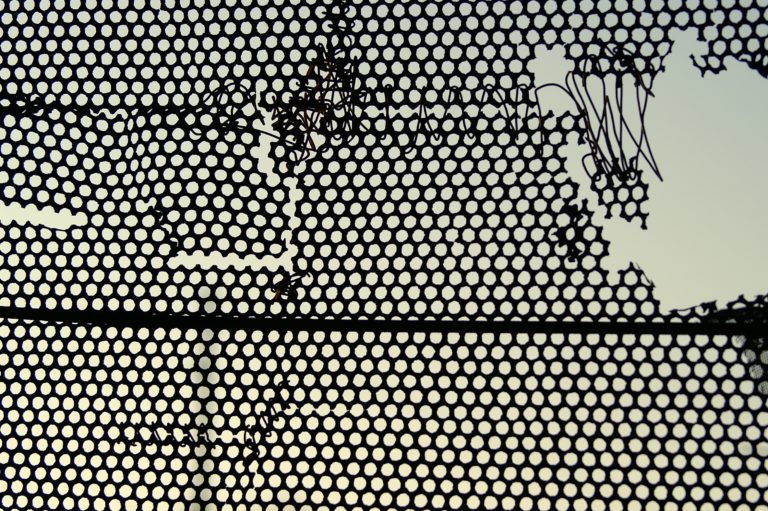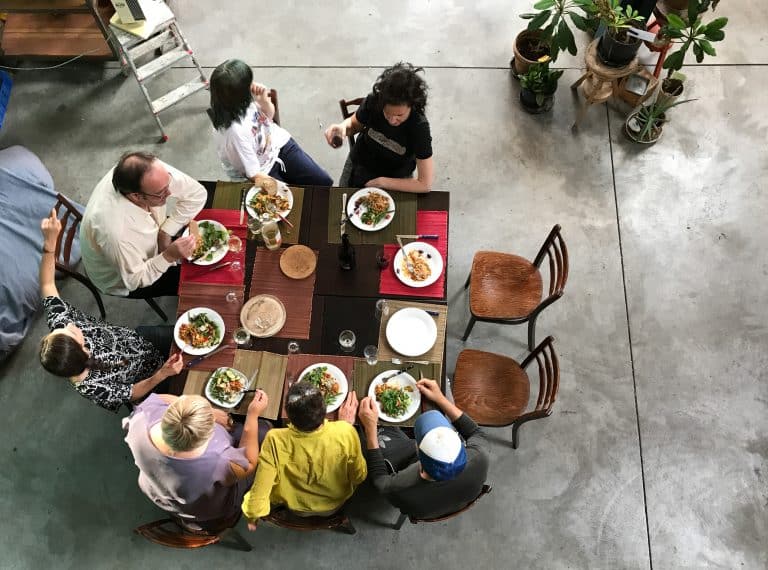
KONICA MINOLTA DIGITAL CAMERA Image by Miuenski Miuenski/Flickr (CC BY-NC-ND 2.0)..
The Paradox of Power and Relationships
The thrilling news is that the world runs on relationships. The devastating news is that the world runs on relationships.
I was reminded of this strange paradox this week. I spent two days at a meeting at a major tech company in Silicon Valley, where the question of how digital connection can fuel social change was top of the agenda.
People like Wael Ghonim, a young Egyptian who played a key role in sparking the Arab Spring, mixed with others like Michael Green, who is rethinking the way we measure the just society with his Social Progress Index. Mallika Dutt emphasized that it’s not just women, but the planet itself, that is demoralized by gender-based violence and Nicole Stubbs talked about how 3 billion people in the developing world are shut out of accessing capital because they mostly operate in the informal economy in the developing world.
While the subject matter ranged widely, everyone was essentially wrestling with versions of the same question: when are our connections life-giving and when do they actually reinforce damaging divides?
I’ve been thinking about this question on a much more personal level lately. My career is entirely built on the strength of wonderful and often wildly serendipitous relationships. In fact, I haven’t gotten a job the old-fashioned way — cold, with a formal resume — since I first graduated college nearly 15 years ago.
I love the deeply organic way that my professional life has unfolded. Mostly, I’ve tried to pay careful attention to the people I really like being around, those that make me feel smart and challenged and creative, and seek out ways to collaborate with them.
But I remember a time when I was first out of college, trying to make it as a freelance writer, when the prospect of building a professional life based on relationships was not only daunting but felt downright discriminatory. I went to panels and listened to editors from fancy publications say that the best way to get published was to make personal connections with editors at fancy publications. Then they would hightail it out of the panel with the people they already knew as soon as the official Q&A was finished.
How the hell, I wondered, was a girl from Colorado Springs supposed to make friends with fancy, literary folks? I would ride the train home bursting with rage at the nonchalant cruelty of the panelists’ advice, hungry to unleash my talent and my ideas on the world, feeling totally stuck.
I don’t really know how I got from there to here. There must have been little breakthroughs — someone who lingered after a panel and actually offered to reply to an email, another who needed some research assistance that I was more than happy to provide. One thing that has always served me well is that I’m not above “dirty work” — whether that’s serving pancakes at a diner or organizing someone’s address book — if it means getting a foot in the proverbial door.
I’m through the proverbial door these days, even sitting at many proverbial tables. And yet, I haven’t forgotten what those deflated rides home on the subway felt like. The world keeps reminding me.
When I left the meeting this week, I ended up in an Uber with a guy — exactly my age — originally from the Philippines. Ricky had been driving Uber for two weeks and said he loved it, “I’m soaking it up like a sponge,” he said. “I’m learning so much driving these interesting people and just talking to them about how they got to where they are in life.”
Ricky asked me how I ended up at this particular meeting and I fumbled around, trying to trace back how it all came about. The lines between the dots were, of course, relationships. Many of them formed at elite conferences. Among people who, like me, are white, middle class and above, highly educated, well intentioned. The kinds of people that Ricky may drive these days, but would never run into otherwise.
Ricky told me he grew up in a house with two bedrooms and eight people; his six siblings all live nearby now and help each other out. “When one is blessed, they bless the others,” he explained. His sister, who has a good government job, actually passed her car onto him, so he could start his driving business (his second job). When his parents lost their manufacturing jobs in the recession a few years ago, Ricky and his siblings pooled their money to send their parents back to the Philippines for a few months of respite, in a place where the cost of living wasn’t so steep.
Ricky’s clearly got a beautiful family. His “strong ties” are thriving. Though he wishes he’d gone to college, instead of joining the military, he’s making ends meet while his wife works her way through nursing school. He didn’t express any rage, at least none that I could hear in our hour together. But I couldn’t help wondering if he sometimes felt like I used to, listening to those smug panelists talking about relationship-building as if it were an equal opportunity prospect when I was, at that very moment, experiencing its absence as an abyss.
It’s easy to pretend that networking is an agnostic sport, when in truth, it widens so many of our world’s most dispiriting economic and social gaps. Crashing into Ricky, thanks to the accident of Uber, reminded me that human bonds are not neutral. We need each other. If only the “we” were less predictable.

